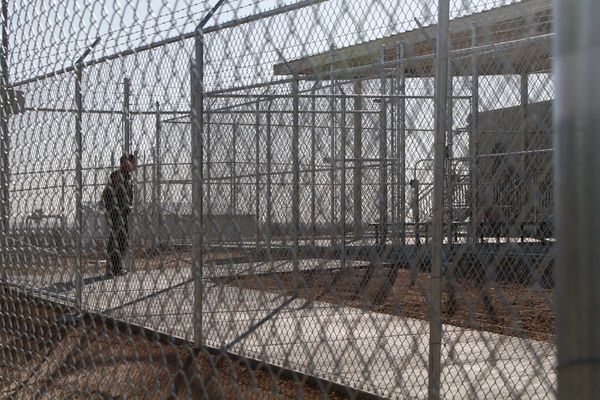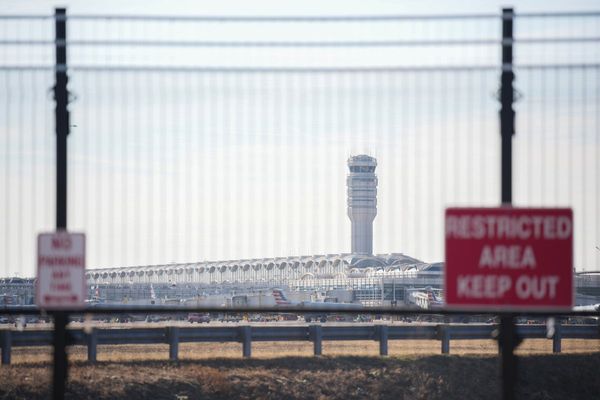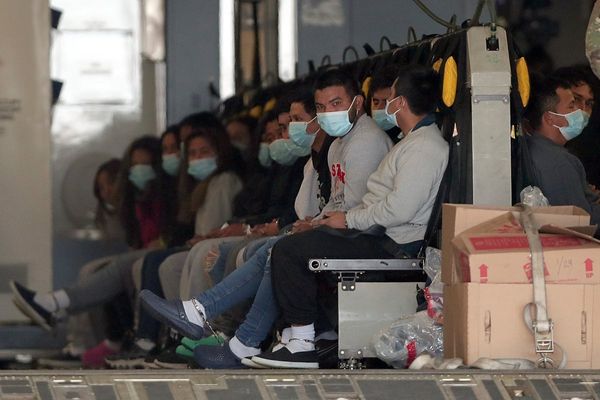
This article is part two in a series. For the full series, go here.
The National Anti-Corruption Commission (NACC) last week released a report into “a former Home Affairs employee’s familial links to a contracted service provider”, Paladin. As detailed in part one of this investigation, despite the many questions the palaver raises, the NACC found no evidence of corruption.
In part two we are looking into yet deeper problems in the awarding of the Manus Island contract to Paladin, because the NACC’s decision to focus on one small question left other corruption allegations uninvestigated. These cast a shadow over the actions of Paladin and Home Affairs, but also over consulting firm KPMG and the NACC itself.
The Paladin Group was founded in 2010 by an Australian ex-soldier, Craig Thrupp, and until 2016 was a small security and project services contractor operating, in various entities, out of Hong Kong, Singapore, Australia and PNG.
It worked on small subcontracting jobs in PNG under Wilson Security and Broadspectrum — the latter having the main contract for the offshore processing centre on Manus Island. But when Broadspectrum decided it wouldn’t re-apply for the Manus work, a new opportunity opened up.
In May 2016 Broadspectrum told Home Affairs that it wouldn’t pursue the Manus contract after the PNG High Court ruled the detention of asylum seekers and refugees unconstitutional. Over the following year, the Australian and PNG governments discussed new arrangements to put in place. Initially, they agreed that PNG would assume management of them from October 2017 (when the existing contract ran out), with Australia helping run the procurement process via officers embedded in the PNG government.
Broadspectrum made its decision public on May 5, 2017.
Three weeks later, on May 31, “Ms Brown” received her first gift from her son.
Paladin was involved in both the PNG and the Home Affairs tender processes that followed.
In June 2017, PNG issued “Requests for Offer” inviting potential contractors to tender for garrison support and welfare services. These included Paladin and four other companies, including three local ones. But during the procurement process, an election was called in PNG, and Australia was advised that PNG wouldn’t enter into new contracts until after the election, at which point Home Affairs decided to (re)assume full control over procurement processes.
On the justification that it was a short timeframe, Home Affairs embarked on a limited tender process. It turned out to be very limited indeed: the tender for garrison and security services was sent on August 28, 2017 — only to Paladin. (Other services on Manus were awarded to two other companies, NKW and JDA, also in limited tender processes.)
On September 4, just a week after being sent the tender, Paladin submitted its bid. Its initial quote to provide the services was $152 million, and after negotiations, Paladin was awarded the contract. In fact, it was offered a revised contract — revised up to $229.5 million.
It is unknown why Paladin was the only company offered this tender. Department secretary Mike Pezzullo later told Senate estimates that “we were dealing with an urgent situation.” Was it really that urgent, though? The Australian government had known since May 2016 that a new provider would be needed. In “market sounding” processes conducted by Home Affairs in 2016, several other major providers had expressed interest in bidding for such services. The ANAO’s 2020 audit of Home Affairs’ procurement processes claimed that “There were 11 providers of which the department was aware that could offer some or all elements of the required garrison support and welfare services.”
A Home Affairs internal audit in 2019 (conducted by consulting firm EY) later declared, “the decision-making trail and information which led to the identification of Paladin Solutions to participate in the procurement process was not clearly documented and was difficult to determine.”
The choice of Paladin was by no means obvious. It had only ever done small-scale subcontracting jobs in PNG. During the tender process, the department’s chief financial officer observed: “This contract represents a significant step up in size for Paladin which represents a high risk for the Commonwealth. The financial strength assessment raises a number of concerns; Paladin’s largest recorded revenue is less than A$6 million pa highlighting the significance of the upscale required to fulfil a $152 million contract.” Let alone a $229.5 million contract.
In fact, Paladin was so small and short on “working capital” that it required a special “mobilisation” fee of $14 million. It had neither the assets nor access to credit required to even start the contract.
The due diligence conducted by Home Affairs on Paladin was also shrouded in secrecy and confusion. Home Affairs asked KPMG to provide a “financial strength assessment” of Paladin during the procurement process, but as the ANAO later stated, this “was undertaken on Paladin Solutions PNG Ltd, which means that for the entity which held the actual contract (Paladin Holdings PTE Ltd), an assessment was not carried out”. (Emphasis added.)
Incredibly, the Home Affairs internal audit noted that “Paladin Holdings did not have financial statements”.
Greens Senator Barbara Pocock, who delved into KPMG’s affairs at the Senate inquiry into consulting services, comments that this auditing of the wrong entity “was not a one-off mistake. KPMG seems to have used the same tactic, or made the same mistake, when assessing Canstruct’s bid to run offshore detention operations on Nauru”.
Readers may be confused how any of this relates to a beach shack on Kangaroo Island, and they aren’t the only ones. In terms of accountability, the various entities in the Paladin Group operated like a shell game.
Yet another great mystery in this saga is how the payments of hundreds of thousands of dollars to a “close relative” of the Paladin founder via false invoices did not ring alarm bells. The payments started in May 2017. The tender process was conducted between August and September 2017 — the following financial year. Surely an audit would involve examining relevant large financial transactions of the previous financial year? KPMG claims it only assessed what it was asked to assess, and denies any wrongdoing.
The NACC report does not mention which Paladin entity was behind the payments to Ms Brown, so it’s unclear whether they were audited by KPMG. However, Thrupp told the Nine papers in 2023 that “all payments were reconciled as director/shareholder payments on the PNG company account statement, audited … and applicable taxes paid in PNG.” This would imply that KPMG had seen them.
Even so, KPMG had assessed Paladin’s financial risk rating as “moderate/high”. (The NACC looked into the matter of the payments by Thrupp/Paladin and did not uncover any evidence of corruption on the part of Thrupp or his mother. We have no reason to doubt these particular findings. However, the investigation should have cast its net more broadly.)
There’s more: KPMG had also been engaged both by PNG and Home Affairs to help conduct their Manus procurements, liaising between them and Paladin in preliminary discussions about the proposed tenders. This appears to be a serious conflict of interest. Oh, and KPMG PNG had a business relationship with Paladin — as business advisers. KPMG Australia told the department that “its Australian business had no association with PNG advisory services”. This would be news to KPMG PNG, whose homepage states that “KPMG PNG is associated with KPMG Australia” and is an “Australian partnership”. KPMG entities were on every side of the deal, including the due diligence.
Paladin started delivering garrison services in Manus from October 2017. Former Paladin director Ian Stewart alleges that his company was immediately approached by senior PNG government officials asking for what amounted to bribes: in one case $8 million if the Australian company wanted visas for its staff. None of these issues — the very limited procurement process, the “due diligence” matters, and bribes subsequently allegedly paid by Paladin — were investigated in the NACC report.
Readers are no doubt wondering how well Paladin delivered its contracted services. Maybe some of this would be forgiven if the services were of high quality? Paladin’s contracts with Home Affairs state that where a contractor has not met a performance indicator, penalties known as “abatements” may be imposed. Between May 2018 and October 2019, Paladin incurred 5,484 abatements totalling $5,813,448 in penalties.
As noted by the department in the ANAO audit, “Paladin’s abatements often related to administrative requirements such as record keeping, reporting timeframe requirements not met and quality improvement requirements.” Funny that. Nevertheless, Paladin’s contract was extended several times, the final extension coming in June 2019.
The story of bribes allegedly paid, Home Affairs’ knowledge of such payments, and outrageously high profits, will be addressed in part three of this series. If only they would be addressed by the NACC.
Does the Paladin affair undermine your faith in the NACC? Let us know your thoughts by writing to letters@crikey.com.au. Please include your full name to be considered for publication. We reserve the right to edit for length and clarity.







